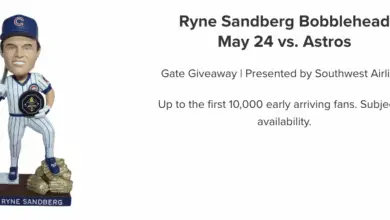
Cubs’ Media Partnership Further Blurs Line Between Sports, Politics
Like most popular entertainment, sports achieve their greatest popularity when providing a needed respite from the worries, tragedies and pressures of life. Similarly, sports and sports figures become less popular when they come to embody too many of the problems and meaner truths that bedevil our society.
The inability of sports to always be a pure pastime is sometimes for the good. This happens when sport provides a stage for positive long-run progress and social statements. Jackie Robinson breaking the color barrier. The Black Power salutes at the 1968 Olympics. Billie Jean King versus Bobby Riggs. Title IX legislation.
But when hijacked by a political party or philosophy, sport can lose some of its life-lightening qualities. Take Hitler and the 1936 Summer Olympics or the assassination of Israeli athletes during the 1972 Munich games. Or to a much lesser degree, when a political party converts the “U-S-A” sports cheer into a jingoistic taunt at a party convention or State of the Union speech.
And so we come to Wednesday’s announcement that the Cubs have officially partnered with conservative media giant Sinclair Broadcast Group. Sinclair is not just right-leaning, but a hands-on political partisan. Last year, it required scores of news anchors at its local TV stations nationwide to deliver the same partisan editorial message and cross the clear line between journalism and opinion.
The announcement of the Cubs regional sports network comes amid team executives marching through several rounds of denouncements of the racist and culturally offensive emails of Joe Ricketts. While the Cubs had no control over the leaking of the emails, they did have control over their partnership with Sinclair. They regretted the first while happily embracing the second.
This also comes as the Cubs publicly lobby fans to support their efforts to defeat Alderman Tom Tunney. Not coincidentally, at least part of the franchise’s frustrations toward city officials dates back to the Ricketts funding anti-Barack Obama political attacks ads in 2012. This led Chicago Mayor Rahm Emanuel to withdraw a $150 million public-funding package to support renovations in and around Wrigley Field.
So when will the Ricketts’ family learn that being so publicly provocative with their politics is not always good for business? I give the benefit of the doubt that Sinclair will run the Cubs network as apolitically as it does its cable Tennis channel, but the chance still exists that Sinclair’s other media arms to act in ways that require the Cubs to issue distancing statements not unlike in the past week regarding Joe Ricketts’s emails.
But does a point exist where all of the political interests, partnerships, and partisan PACs become too much for some of the fan base to swallow? You don’t expect the die-hards to be affected immediately, but the degree of interest by outer rings of fans can decline, as it has with the NFL in recent years. The White Sox lost a small but significant portion of their fan base because of Jerry Reinsdorf’s successful efforts to first squeeze a publicly funded stadium out of taxpayers and then leading the owners in cancelling the 1994 World Series.
Where that tipping point lies will remain an open question until the business returns shift from just diminishing to negative. What’s clear, though, is that the Ricketts seem confident they aren’t close to that point or else they’d have partnered with a less politically freighted broadcast group.
But what’s also clear is most sports fans don’t want all the unnecessary politics and controversies the Cubs seem to be embroiled in with increasing frequency. Most just want help “taking a break from all their worries,” as the old Cheers theme song once put it.

